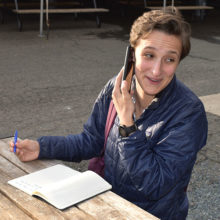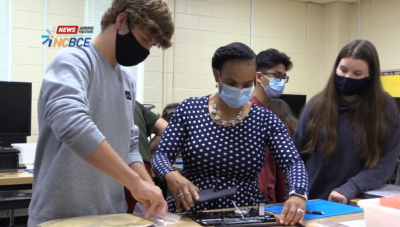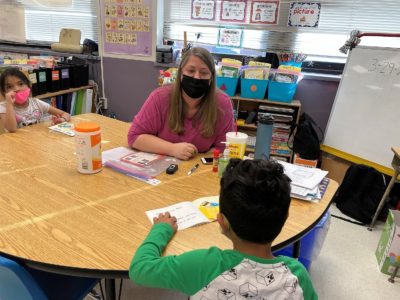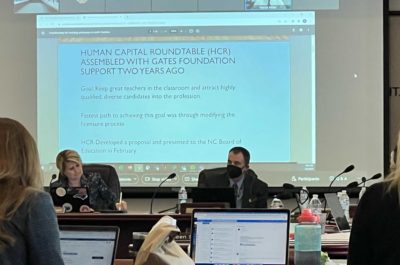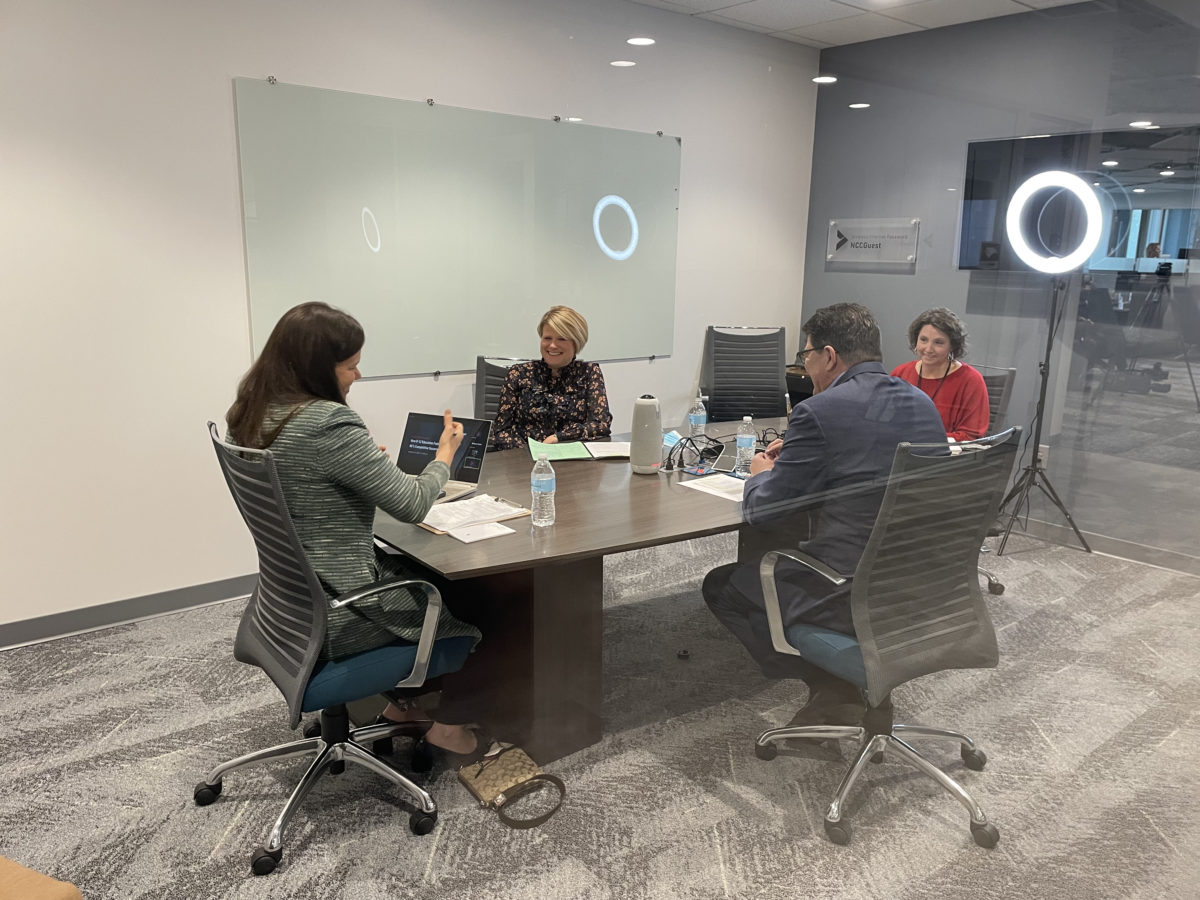
With employment still below pre-pandemic levels, State Superintendent of Public Instruction Catherine Truitt and N.C. Chamber President Gary Salamido unveiled their ideas on Wednesday for improving alignment between North Carolina’s K-12 public school system and its workforce.
The livestreamed conversation, titled “How K-12 Education Fuels NC’s Competitive Success,” was moderated by EducationNC’s CEO Mebane Rash.
Truitt, who recently declared 2022 “the year of the workforce,” outlined four goals and a new workforce development website to help reframe “what a K-12 education is all about.”
“We hear more and more about young people living in their parents’ basement,” she said. “We need to be intentional about the way we are preparing students for life after high school, in a way that looks different than the way we’re doing it now.”
Truitt unveiled her full strategic plan, Operation Polaris, last year.
For the N.C. Chamber, Salamido announced the creation of the N.C. Chamber Foundation’s Institute for Workforce Competitiveness. The institute, set to launch in March, will begin by seeking out stories of successful workforce initiatives from N.C. Chamber members and then look to boost those statewide.
“It’s going to bring people together to make sure we advance and make sure North Carolina is the best place to live, work, and raise your family,” Salamido said.
‘A moment in time’
Both Truitt and Salamido discussed the role of the COVID-19 pandemic in improving school system-workforce alignment. According to a statement from the N.C. Chamber, despite a record number of available jobs, the number of North Carolinians employed and in the labor force is still below where it was prior to the pandemic.
“Now we have a moment in time to fundamentally do things and change things forever in communities all across North Carolina that maybe would’ve taken a lot longer to do, or maybe we wouldn’t have had the same type of impetus to do them,” Salamido said. “But the pandemic has shown what we always knew where the gaps were but they’re much more in front of us now.”
“The pandemic has shown us how quickly the workforce can change,” Truitt added. “We are, I think, in the middle of some shape-shifting when it comes to what work looks like.”
New accountability metrics?
Truitt also expressed interest in revising the current school accountability model to reflect business community engagement.
“We cannot continue to define school quality solely based on 80% achievement, 20% growth,” she said.
She proposed considering data on the number of students participating in the Career & College Promise program or the enrichment activities offered at a school.
You can hear more from Truitt and Salamido in Business North Carolina‘s Weekly Roundup here.
Other highlights
Here’s a few more highlights from the webinar:
- When asked about their first experiences in the workforce, Truitt: “I started my very first working engagement as babysitter … but my first actual, you know, real job was my senior year of high school. I worked Godiva chocolates at the mall near my house.” Salamido: “My first job was counting coins. My dad was in the vending business. So it was counting coins and putting them into wrappers.”
- Truitt: “The vast majority of jobs require some postsecondary education and credential of value. And that could mean a truck driving credential, a welding credential, IT certifications, a two-year degree in finance, or a four-year degree in education. Right now, we have about an 87% high school graduation rate across our state, but only 31% of our graduates go on to get some kind of credential of value before the age of 24.”
- When asked what teachers should be emphasizing most in K-12 classrooms, Salamido: “The fundamentals are the fundamentals, right? It all starts with reading.” Truitt: “What we’re hearing in the education community is that what used to be called ‘soft skills,’… communication, collaborations, being a member of a team, critical thinking skills, being a creative problem solver — those have been renamed ‘durable skills.’ And I love that they’re being called durable skills because they are skills for a lifetime.”
